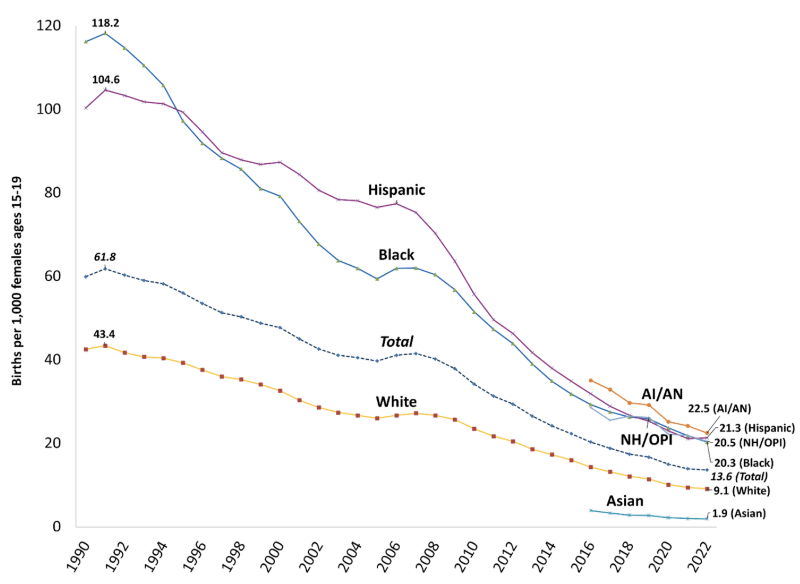Sex Education in California

California’s middle schools and high schools have a big job. Along with all the academic stuff, these schools have to ensure that each pimpled adolescent learns about sex. Hopefully in time.
This post explains how sex education generally works in California’s schools. How and when is it provided? Who’s responsible for it? What does it include? What is the role of parents? What is taught about sexuality, orientation and gender identity?
Sex is not a four-letter word
Most of us aren't exactly smooth when it comes to talking with kids about sex. We know we should speak frankly, but words like "vagina" make us blush, and we haven't really practiced how to talk about it, and…
Come to think of it, um, we're kind of busy just now. Could we talk about this later?
Porn is the default alternative to sex ed
Well, no. Kids learn about sex from peers and porn much earlier than parents think. According to surveys by Common Sense Media, half of kids have consumed pornography by age 12. A 2024 survey by the organization SIECUS: Sex Ed for Social Change found that 55% of respondents never heard “the talk” from their parents at all.
Seventh Grade
Every year in California, about a quarter of a million girls have their first period, usually in 6th grade. Many California schools begin teaching “puberty education” in seventh grade, which is awfully late, biologically speaking. A 2024 study found that girls are getting their first periods earlier than ever, at an average of 11.9 years old.
Puberty hits boys later and differently than girls. In seventh grade, the tallest student in the room is often a girl. For most boys at this age, puberty is still an unconfirmed rumor beginning to shadow their upper lip. Many schools follow up “puberty education” in middle school with “sex ed” (or “sexual health education”) in high school when the boys are a little more caught up.
Sexual identity
In the process of maturing, kids develop their sexual identity, including gender and orientation. According to annual surveys by Gallup, there is an enormous generation gap in these identities. Nearly a quarter of young American adults in their 20s (GenZ, born 1997-2006) self-identify as LGBTQ+, especially bisexual. (Skeptical? A CDC survey of high school students during the pandemic reached similar conclusions.)
High school sex
Common and illegal
Sex in high school years is common and illegal. The average age of first sexual intercourse for girls in America is 17.1 years of age, almost a year younger than the minimum age of consent in California: 18.
According to survey data collected by the Centers for Disease Control, there is a 25% chance that teen girls in America have had sex by the age of 16 (and a 27% chance for boys). If that doesn't chill you, this will: Surveys by CDC show that the first experience of intercourse for 6.2% of girls is “not voluntary.” Another NCHS survey finds that 7.6% of girls “really didn’t want” their first experience with sexual intercourse to happen when it did. Planned Parenthood reports that in 2010 about six percent of US teens aged 15-19 became pregnant, with huge variations by race and ethnicity.
There is significant good news. Teen pregnancy rates, birth rates, and abortion rates have all declined dramatically over the long term. According to the CDC, the teen birth rate in the U.S. has continuously declined since 1991. The decline is likely due to the combination of delays in sexual intercourse and an increased use of contraceptives among adolescents.

Most public school parents agree that schools need to teach sex ed. But they don't necessarily agree about what sex education should include, what the goals of sex ed programs should be, and whether specific programs can achieve those goals.
What California kids learn about sex in school
Compared to other states, California has relatively good policies to improve the odds that students receive sex education according to SIECUS, a nonprofit organization. The state legislature updated its policies for sex education and HIV/STD prevention in 2015 with passage of the California Healthy Youth Act (CHYA). California public schools (including charter schools) are obligated to provide all students in grades 7-12 with age-appropriate sexual health education that is “comprehensive and medically accurate.”
The official goals of the CHYA are expressed in carefully negotiated legalese. Here's a loose translation of the major requirements. Public schools must:
- Prepare students to understand the crazy way their bodies and feelings are changing, or are about to change.
- Encourage students to not to be jerks about the crazy way others' bodies and feelings are changing.
- Teach students how condoms actually work, and why it's important to use them. Correctly.
- Teach that students have different sexual orientations and identities, urge them to be inclusive of same-sex relationships, and be aware that negative gender stereotypes are harmful.
In elementary grades, California doesn't require any sex ed at all. School districts can provide sex ed — many do — but state law doesn't demand it. In grade 7 ("junior high school") the state requires one class session. Another class session is required in high school. It is unclear whether this minimum has any effect; most programs that have been evaluated engage students far more meaningfully and frequently.
Parents in California public schools have the right to exclude their children from sex education. They cannot exclude their children from course content that relates to non-discrimination and anti-bullying measures.
About a tenth of California students in elementary and middle school grades attend a private school, most of which have a religious affiliation. The state has no say over what kids are taught about sexuality in private schools.
Who teaches sex ed classes?
According to research by the ACLU of Northern California, there's quite a variation in who teaches this subject. In many schools the job goes to a science teacher or a PE teacher. Other schools hire consultants — some of which are great, and some truly awful. Comedian John Oliver calls out some of the appalling examples in the video below. With the support of a cast of celebrities, he offers his own not-entirely-satirical alternative:
Is Sex Ed effective?
Sex ed offers a memorable break from the usual curriculum. But does it make a difference? It's fair to ask, right? Can instruction in school compete with hormones and pop culture?
Perhaps amazingly, the answer appears to be yes — at least a little. There are three generally accepted ways to measure the minimum outcomes of Sex Ed programs:
- Delayed sexual activity;
- Increased contraceptive use; and
- Preventing teenage pregnancy or births.
Research has demonstrated that sex ed programs can helpfully influence those outcomes, particularly if programs are health-oriented. The National Campaign to Prevent Teen and Unplanned Pregnancy recommends health-oriented programs that incorporate service learning. Abstinence-oriented programs have been shown to have positive effects on the three measures mentioned above, but only among very young teens. A 2021 review of research found that comprehensive sex education programs can lead to many positive outcomes beyond the three above —including reduced domestic violence and community conflict.
Abortion
According to the Guttmacher Institute, about 93,000 teens in America had an abortion in 2020, when the right to abortion was protected by the Constitution. In 2022, the Supreme Court ruled that the Constitution does not guarantee women the right to abort a pregnancy. In some states, abortion services disappeared. California is among the states that sustained abortion rights, with limitations. Inconsistent access to abortion services make universal sex education more important than ever.
Yes Means Yes
Education can inform sexual choices. Can it also change attitudes? California is giving it a try. As part of its requirements for sex ed, California requires high schools and colleges to teach students about affirmative consent, better known as “Yes Means Yes”. A 2024 law requires California public colleges to provide students annual training about sexual harassment. Other states are implementing similar policies, including Washington and New Mexico.
Where to learn more
When it comes to educating parents and teens about sexual health, no organization has been at it longer than Planned Parenthood. Start there.
Is your school district changing its approach to sexual health education? What's working? We'd like to hear about it! Please leave a comment.
Tags on this post
At-risk students Health Parents Sex EdAll Tags
A-G requirements Absences Accountability Accreditation Achievement gap Administrators After school Algebra API Arts Assessment At-risk students Attendance Beacon links Bilingual education Bonds Brain Brown Act Budgets Bullying Burbank Business Career Carol Dweck Categorical funds Catholic schools Certification CHAMP Change Character Education Chart Charter schools Civics Class size CMOs Collective bargaining College Common core Community schools Contest Continuous Improvement Cost of education Counselors Creativity Crossword CSBA CTA Dashboard Data Dialogue District boundaries Districts Diversity Drawing DREAM Act Dyslexia EACH Early childhood Economic growth EdPrezi EdSource EdTech Education foundations Effort Election English learners Equity ESSA Ethnic studies Ethnic studies Evaluation rubric Expanded Learning Facilities Fake News Federal Federal policy Funding Gifted Graduation rates Grit Health Help Wanted History Home schools Homeless students Homework Hours of opportunity Humanities Independence Day Indignation Infrastructure Initiatives International Jargon Khan Academy Kindergarten LCAP LCFF Leaderboard Leadership Learning Litigation Lobbyists Local control Local funding Local governance Lottery Magnet schools Map Math Media Mental Health Mindfulness Mindset Myth Myths NAEP National comparisons NCLB Nutrition Pandemic Parcel taxes Parent Engagement Parent Leader Guide Parents peanut butter Pedagogy Pensions personalized Philanthropy PISA Planning Policy Politics population Poverty Preschool Prezi Private schools Prize Project-based learning Prop 13 Prop 98 Property taxes PTA Purpose of education puzzle Quality Race Rating Schools Reading Recruiting teachers Reform Religious education Religious schools Research Retaining teachers Rigor School board School choice School Climate School Closures Science Serrano vs Priest Sex Ed Site Map Sleep Social-emotional learning Song Special ed Spending SPSA Standards Strike STRS Student motivation Student voice Success Suicide Summer Superintendent Suspensions Talent Taxes Teacher pay Teacher shortage Teachers Technology Technology in education Template Test scores Tests Time in school Time on task Trump Undocumented Unions Universal education Vaccination Values Vaping Video Volunteering Volunteers Vote Vouchers Winners Year in ReviewSharing is caring!
Password Reset
Search all lesson and blog content here.
Login with Email
We will send your Login Link to your email
address. Click on the link and you will be
logged into Ed100. No more passwords to
remember!














Questions & Comments
To comment or reply, please sign in .
JayZ March 31, 2025 at 5:28 pm
Jeff Camp January 13, 2020 at 6:23 pm
Jeff Camp January 13, 2017 at 9:53 am